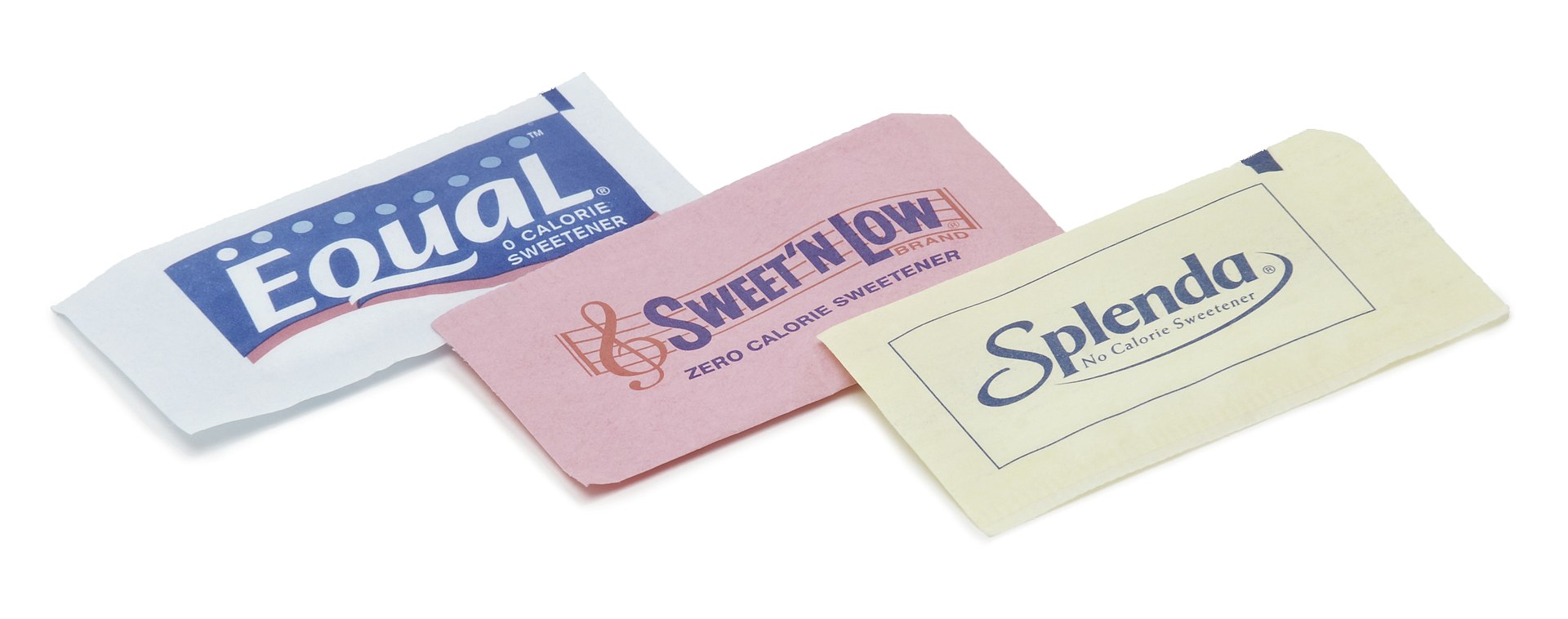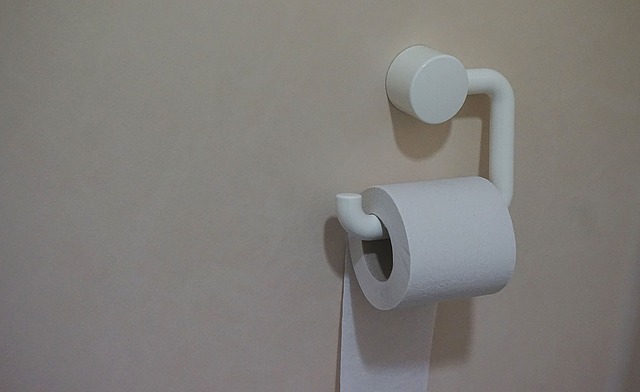You asked and we're here to answer: Can Splenda cause diarrhea?
The debate and controversy surrounding the safety of Splenda and its affects on health are ongoing, but it seems that the number of anti-Splenda advocates are growing with the current trend to a more natural diet.
In this article we'll be taking a look at how this artificial sweetener passes through the body and more than one reason it could cause diarrhea... which is a side-effect that has been reported.
What Exactly Is Splenda?

Splenda is that brand-name for an artificial sugar substitute that is 600 times sweeter than sugar, is considered a "no calorie" sweetener, and is composed of 3 ingredients: sucralose, maltodextrin, and dextrose.
Sucralose is the substance behind its incredible sweetness, which maltodextrin and dextrose are said to be "bulking ingredients" [source: Splenda.com/faqs].
While this popular sugar substitute is considered "no calorie", it does actually contain a small amount from the maltodextrin and dextrose... but because there are so few the FDA allows for the labeling of "no calorie".
How It's Made
Sucralose is the only ingredient that is "made". It is an artificial ingredient that is made from sugar. The patented process starts out with normal sugar molecules and replaces three hydrogen-oxygen groups with three chlorine atoms.

Sucralose Molecule
The result of this process is a molecule that, because of it's unnaturalness, isn't broken down by the body and provides no calories.
Is It Safe?
While it is claimed to cause upset stomach, boating, gas and diarrhea for some people, it is considered safe if consumed in normal doses.
Spenda is approved in over 80 countries and was first approved by the FDA in the US in 1998.
There have been numerous studies on its safety which have shown it to be well tolerable, such as a 13-week study with adult volunteers given up to 10mg of sucralose per kilogram of body-weight per day without any adverse effects. However, there is still some controversy here and many natural health advocates will tell you to ditch the artificial sweeteners.
Splenda & Digestion
Splenda largely passes through the body without doing anything. It is not recognized by the body as a carbohydrate and is not metabolized.
About 85% passes through the body unchanged and leaves in the stool, while a small percentage is absorbed and later excreted through urination.
A Cause for Diarrhea?

The fact that sucralose, the main ingredient in Splenda, is not digestible by the body is what lead many to believe is the cause for upset stomach, boating, diarrhea, etc.
After all, people who aren't able to digest lactose and fructose effectively have diarrhea as a common outcome of eating foods rich in such compounds.
According to Columbia University, sucralose and other artificial sweeteners are notorious for laxative effects, such as diarrhea and gas.
But why is this?
Well, the studies are lacking in this particular area, but there are several possibilities.
3 Reasons Splenda May Cause Diarrhea
#1 - Intestinal Inflammation
In a 6 week study in which mice were fed Splenda, it was found to increase microbial dysbiosis and Crohn's-like disease, which is an Inflammatory Bowel Disease that patients often experience diarrhea from. The pro-inflammatory enzyme myeloperoxidase was also found at increased levels, which is thought to be the result of the increased amounts of E. coli.
#2 - Harmful Gut Microbiota Effects
The study mentioned above found that Splenda causes a disruption of the microbiome of the gut in mice, Other studies have found similar results.
A 2018 study in PLOS One found that non-nutritive sweeteners such as Splenda have bacteriostatic effects and disrupt the gut microbiota, and a 2008 study from the Journal of Toxicology and Environmental Health found Splenda to cause a "reduction in beneficial fecal microflora", among other negative side effects.
Ingesting probiotics to stop diarrhea is becoming increasingly common, and has some proven effectiveness. Probiotics are "good" but bacteria so it makes sense that a disruption in gut flora and a killing of "good" gut bacteria from Splenda could potentially lead to GI tract problems like diarrhea.
#3 - Maybe It Doesn't..?
It could be possible that Splenda gets blamed for side-effects caused by other ingredients, such as sugar alcohols often included in splenda-containing foods/drinks, which are known to cause stomach issues.
Sugar alcohols are neither sugars or alcohols. They occur naturally and are used as sweeteners as well, but are also known to cause bloating, diarrhea, etc. because they are not well absorbed during digestion and ferment in the intestines--one of the reasons the protein-packed nutritional Quest Bars may cause diarrhea for some.
The Takeaway
While Splenda has been found to be "safe" by the FDA and is approved in over 80 countries, what is considered "safe" by some may not be considered "safe" by others.
Splenda has been well proven to kill good gut bacteria, was found to increase intestinal inflammation, and there are other less proven reasons why it may lead to gastrointestinal distress and possibly diarrhea.
To make matters worse, according to MayoClinic using "no calorie" sugar substitutes such as Splenda tricks your body and might actually make you hungrier and lead to eating more... defeating the purpose of using a "no calorie" sweetener in the first place.
Now it's your turn: What are your experiences with Splenda and what do you think about it?
We love to hear back from our readers 🙂
Recommended: What to Eat to Stop Diarrhea and Foods for a Healthy Gut Flora


I have been experiencing horrible diarrhea for a few months and I consume splenda regularly. My plan is to refrain for a few days to see if I see a difference. If so, they will loose a faithful customer, because this is disrupting my entire life!
Absolutely narrowed it down to sucralose that was causing diarrhea. Even Shasta has a regular Cola that is not a diet cola but still contains sucralose for some odd reason. Sucralose also causes tightness of the upper back and shoulder and neck. Aspartame does not cause diarrhea are shoulder stiffness or neck stiffness. So I don’t understand articles that lump these sweeteners together when they don’t seem to react to the body in the same way.